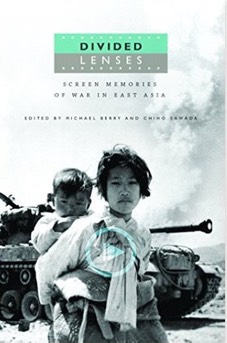
Way back in December 2008, I took part in an excellent conference at Stanford on war and memory in East Asian cinema. The talk I delivered was on Yamato (Otokotachi no Yamato, 2005), Sato Jun’ya’s box office hit that was produced by the maverick Kadokawa Haruki about the ill-fated battleship Yamato. Taking into consideration not only the long history of films on the Yamato, but also some contemporary kamikaze war films, I argued that the film is not just reworking wartime memory for the sake present-day historical revisionism towards WWII, but that it is utilizing its own depiction of violence to create a kind of “vicarious trauma” whose main effect is a forgetting of the postwar and its own traumatic history of the Cold War.
The plan even then was to turn the conference into an anthology, but for various reasons, the plan dragged on. When it was clear the anthology was not going to appear very soon, I got permission to publish a very abridged version of my piece in Japan Focus under the title, "War and Nationalism in Yamato: Trauma and Forgetting the Postwar.” It then took about another five years for the anthology to come out, but it finally has, and it looks great. Here’s the reference for my piece:
- Aaron Gerow, “War and Nationalism in Recent Japanese Cinema: Yamato, Kamikaze, Trauma, and Forgetting the Postwar,” in Divided Lenses: Screen Memories of War in East Asia, eds. Michael Berry and Chiho Sawada (Honolulu: University of Hawai’i Press, 2016): 196-219. ISBN 978-0824851514
The book includes pieces on China, Japan, Taiwan, Hollywood, and South Korea, on topics as varied as film, manga, anime, television, and video games. Contributing scholars include David Desser, Yingjin Zhang, Hyangjin Lee, Eric Hayot, and Kyu Hyun Kim.
For the time being, Hawai’i has only published a clothbound copy, but at a price that is not as high as some hardbound versions.

